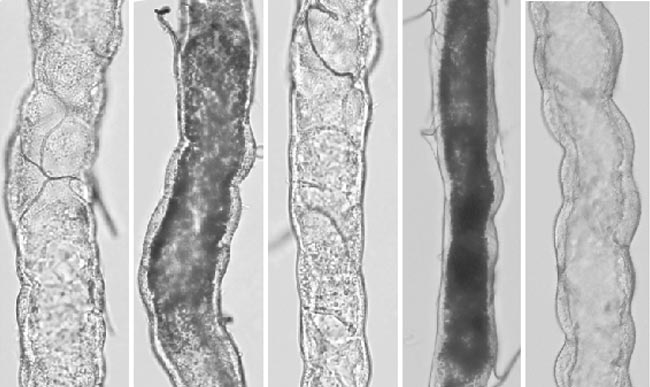By Sophie Arthur
March 20, 2020
Time to read: 5 minutes
Eating sugar makes life sweeter, but eating too much of it also makes life shorter.
Western diets are rich in sugar. In the United Kingdom, it is estimated that an individual consumes on average 3 to 4 times the maximum recommended amount.
The detrimental effects of sugar on health and lifespan are widely attributed to the development of metabolic diseases, such as obesity and type-2 diabetes. However, a recent study by our Redox Metabolism group shows that sugar has negative effects on survival independent of these conditions.
The group uses the fruit fly Drosophila as a model to study ageing and metabolism. Compared to humans, fruit flies are easy to maintain and have a much shorter lifespan. Yet many biological processes are strongly conserved with humans, allowing researchers to make progress more rapidly.
To model metabolic disease in Drosophila, you can simply feed them a sugar-rich diet, resulting in many recognisable diabetic-like features. “Just like humans, the flies become fat, hyperglycaemic and resistant to insulin. They also die earlier compared to flies fed a normal diet. The more sugar you add, the earlier they die”, says Dr Helena Cochemé, head of the Redox Metabolism Group. While the reason for their early death was generally assumed to be related to sugar-induced metabolic defects, the underlying mechanism was never proven.
In this study, published in Cell Metabolism on 19 March, the group shows that excess dietary sugar causes the flies to be dehydrated. “Surprisingly, the shortened lifespan of sugar-fed flies can be completely rescued when we give them an extra source of water to drink. Unexpectedly, these flies are still fat and insulin resistant. This tells us that the reduced fly survival is independent of the metabolic defects induced by high-sugar feeding, but rather is linked to the water imbalance”, continues Dr Cochemé.
Water is often overlooked in metabolic studies, even though it is vital for normal physiology. Excess sugar itself can cause dehydration. In fact, sugar-related metabolic diseases are associated with water imbalance. For example, thirst and increased urination are two of the classical symptoms of type-2 diabetes.
“Because water balance is intrinsically related to kidney function, we focussed on the fly renal system to understand what could be killing them if not the metabolic defects”, continues Dr Cochemé. By looking at the Malpighian tubules, the ‘kidneys’ of the fruit fly, the group found that flies develop kidney stones on a sugar-rich diet. A closer look at these stones revealed that they were composed of uric acid, which is also a well-known cause of kidney stones in humans.
“Uric acid is an end-product of purine degradation. Purines are essential building blocks of our DNA and RNA. We show that the extra dietary sugar fuels the purine pathway, which results in the build-up of uric acid. At the same time, a sugar-rich diet induces a lower pH, which further promotes the crystallisation of uric acid”, explains Eliano dos Santos, a PhD student in the Redox Metabolism group. “We could prevent the formation of kidney stones, by diluting them with additional drinking water or with a drug that blocks uric acid production. In turn, this protects the flies against sugar-induced early death”.

“But unfortunately, this does not mean that we can have our cake and eat it, as long as we drink plenty of tea!”, says Lucie van Leeuwen, another PhD student in the Redox Metabolism group. “Even if we can reverse the shortened lifespan of our sugar-fed flies by giving them drinking water, they are still obese and unhealthy. In humans for instance, obesity is a major risk factor for heart disease. But our study suggests that disruption of the purine pathway is limiting for survival in high-sugar-fed flies, and that their early death is not a direct consequence of obesity itself.”
Collaborating with researchers from Kiel University in Germany, the group further explored how dietary sugar consumption affects human kidney function and blood metabolite composition. “Like flies, we found that dietary sugar intake in humans was associated with worse kidney function and higher purine levels in the blood”, says Prof. Christoph Kaleta, co-author of the study.
Uric acid levels tend to increase with age and can predict the onset of metabolic diseases such as diabetes. “It will be very interesting to explore how our results from the fly translate to humans, and whether the purine pathway also affects human survival”, concludes Dr Cochemé. “There is substantial evidence that what we eat influences our life expectancy and our risk for age-related diseases. By focusing on the purine pathway, our group hopes to find new therapeutic targets and strategies that promote healthy ageing”.
‘Sugar-induced obesity and insulin resistance are uncoupled from shortened survival in Drosophila’ was published online in Cell Metabolism on 19 March. Read the article here.
Written by the Redox Metabolism lab